Origin of the Word Damascus
There are different opinions about the origin of the word "Damascus". Most commonly associated with the Syrian capital Damascus, this sword was originally sold in Damascus. The word "damas" comes from the Arabic word "ma", meaning water, and the blades made of wootz steel exhibit swirling water patterns.
In addition, the special swirl pattern on the steel is connected with the pattern on brocade fabric, which is also called "Damascus".
What is Damascus Steel?
Damascus steel, also known as pattern-welded steel, is a unique composite steel with a distinctive swirling pattern of alternating light and dark.
From ancient times to modern times, Damascus steel has always been one of the most popular knife steels in the world. It not only has a beautiful appearance but also has outstanding flexibility, sharpness, and hardness. Even in modern times, ancient folded and forged Damascus knives still outperform most stainless steel knives.
Damascus steel has the characteristics of both high hardness and high toughness. Even if it is polished into an extremely thin blade, it still has strong retention and is not easy to break during use.
Traditional Damascus Steel
Traditional Damascus steel is made from a type of steel that appeared on the Indian Peninsula about two thousand years ago as a forging material and is made through special forging techniques. This steel billet is cast in a crucible by crude methods and then forged. For a long historical period, Damascus steel billets and sword products were sold to Europe and Asia through the Syrian city of Damascus.
By the 18th century, when modern European scientists began to notice and study Damascus steel, the forging technology of Damascus steel had disappeared in Central Asia, its origin. Regarding the specific reason for the disappearance, one theory is that the Uzi steel ore resources were exhausted at that time.
Utz steel can still be found occasionally in the antique market, and authenticity can be judged by the pattern structure on the surface of the steel billet. Utz steel itself is very hard but very brittle. It needs to be folded and forged under specific conditions and cleverly combined with certain special additives in order for it to complete its transformation from Utz steel to a traditional Damascus knife. Since the relevant craftsmanship has been lost, few people would attempt to forge swords from such expensive antique steel billets. The probability of failure is too high.
Modern Pattern-Welded Damascus Steel
Metallurgists, historians, and collectors around the world, as well as many archaeologists, have attempted to restore Damascus steel. But since the original methods were lost, archaeologists and historians have given Damascus steel a modern twist. Today, almost all existing Damascus steel is fold-forged, a composite of steels of varying hardness. Modern Damascus steel comes in different types of patterns, with the pattern effect mainly depending on the number of layers forged and the forging technique used by the blacksmith.
The selection of modern Damascus steel has a great influence on the quality of the finished product. The steel types commonly used for folding and forging include VG1, VG2, VG10, AUS8, and AUS10.
Why are Damascus Steel Knives so Durable?
Unlike other stainless steel or carbon steel materials, Damascus steel knives are not made of a single type of material but a composite of different steel types. Therefore, the forged knife will also be composited to exhibit many excellent properties. For example, VG10 and VG2 are often used to forge Damascus steel. VG10 contains carbon, molybdenum, chromium, cobalt, vanadium, and manganese. VG2 contains carbon, molybdenum, nickel, copper, and chromium. Carbon provides strength and sharpness, wear resistance, and edge retention, nickel improves corrosion resistance, and chromium increases tensile strength and hardness. In addition, scientists have tested that swords made of Damascus steel contain carbon nanostructures, and their strength and hardness are incredibly strong. (Know more difference between Damascus steel VS Carbon steel, check at The Complete Guide to Damascus Steel VS Carbon Steel)
Therefore, modern Damascus steel knives are fully capable of being used as outdoor camping knives, hunting knives, kitchen knives, and more, allowing them to perform various tasks including cutting, slicing, chopping, skinning, trimming, and outdoor camping activities.
Advantages of Damascus Steel Knives
Damascus steel knives have several advantages that make them popular among professional chefs and collectors:
1. Excellent Sharpness and Edge Retention
Damascus steel blades can be ground to a very fine edge for precise cutting and slicing. Additionally, the steel's composition and heat treatment contribute to excellent edge retention, meaning the knife will stay sharp after extended use.
2. Excellent Strength and Durability
Damascus steel knives are known for their exceptional strength and durability. The layering and forging process used to create Damascus steel allows the blade to withstand significant wear and tear, making it suitable for heavy-duty use.
3. Strong Corrosion Resistance
While not all Damascus steel knives are stainless steel, many modern variations incorporate stainless steel alloys into them, providing enhanced corrosion resistance compared to traditional carbon steel blades. This makes Damascus steel knives suitable for use in humid or humid environments without the need to worry about rust or corrosion.
4. Unique Appearance
One of the most distinctive features of a Damascus steel knife is its beautiful pattern, which is created by layering and treating different types of steel during the forging process. These patterns vary widely, giving each knife a unique and beautiful appearance.
5. Versatility
Damascus steel knives come in a variety of shapes and styles, making them versatile tools for a variety of tasks. Whether you need a knife for slicing, chopping, or fine precision work, a Damascus steel knife may fit your needs.
6. Collection Value
Damascus steel knives often hold significant value to collectors due to their historical significance, craftsmanship, and unique appearance. Some collectors appreciate the artistry and craftsmanship of Damascus steel blades, while others are drawn to the historical and cultural aspects associated with these knives.
Disadvantages of Damascus steel knives
Obviously, a high-quality Damascus steel knife will be more expensive than other knives because the creation of Damascus steel is a time-consuming and labor-intensive process. Compared with other high-quality steel knives, a good Damascus steel knife needs to be folded dozens of times and takes more time to forge. High-intensity finishing is to ensure the quality of Damascus.
Damascus steel knives require more careful and professional maintenance. Because most of the raw materials are carbon steel, most Damascus steel knives have a common problem with carbon steel knives and tend to rust, so they need to be cleaned immediately after use. In addition, because of the pattern effect on the blade surface, polishing a Damascus steel knife is also a technical job.
It is undeniable that Damascus knives have a unique and elegant beauty, with swirls, waves and water-like patterns that are fascinating. In fact, Damascus steel is indeed a good material for making knives. Its unique pattern makes it stand out from other similar steels, making it the most unique and ideal one.
How to Care for Damascus Steel Knives?
Caring for Damascus steel knives is essential to maintain their performance, appearance, and longevity. Here are some tips on how to care for your Damascus steel knives:
1. Clean the Knife After Use
After each use, clean the knife with warm, soapy water and a soft sponge or cloth. Avoid using abrasive cleaners or scrubbers, as they can scratch the surface of the blade and affect the Damascus pattern.
2. Dry Thoroughly
After washing, dry the knife thoroughly with a clean towel to prevent water spots and minimize the risk of corrosion. Pay particular attention to drying the area around the handle and along the spine of the blade.
3. Store Properly
Store your Damascus steel knife in a dry place away from moisture and humidity. Consider using a knife block, sheath, or magnetic strip to protect the blade and prevent accidental damage.
4. Avoid Dishwashers
Never wash Damascus steel knives in the dishwasher, as the harsh detergents and high heat can damage the blade and handle. Hand washing is always the best method for cleaning knives.
5. Sharpen Regularly
Keep your Damascus steel knife sharp by regularly honing and sharpening the blade using a sharpening stone, honing rod, or electric sharpener. Maintaining a sharp edge not only improves cutting performance but also reduces the risk of accidents.
6. Use with Care
While Damascus steel knives are durable, they are not indestructible. Avoid using the knife for tasks it's not designed for, such as prying or twisting, as this can damage the blade or chip the edge.
By following these care tips, you can ensure that your Damascus steel knife remains in optimal condition, providing years of reliable performance and enjoyment.


.jpg?w=1000&h=1000)
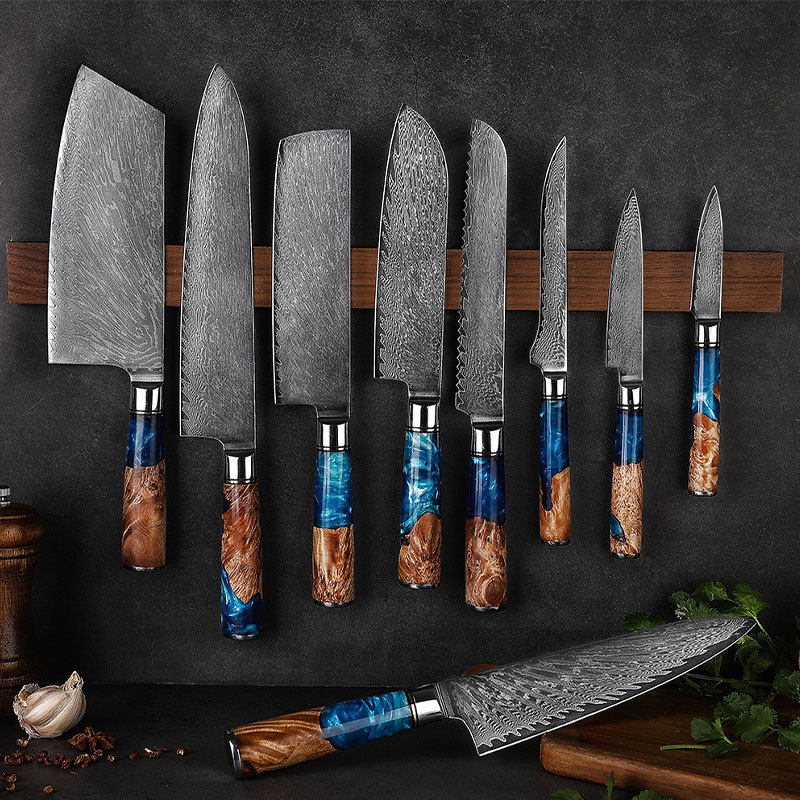
.jpeg?w=1600&h=1600)
.jpeg?w=1600&h=1600)
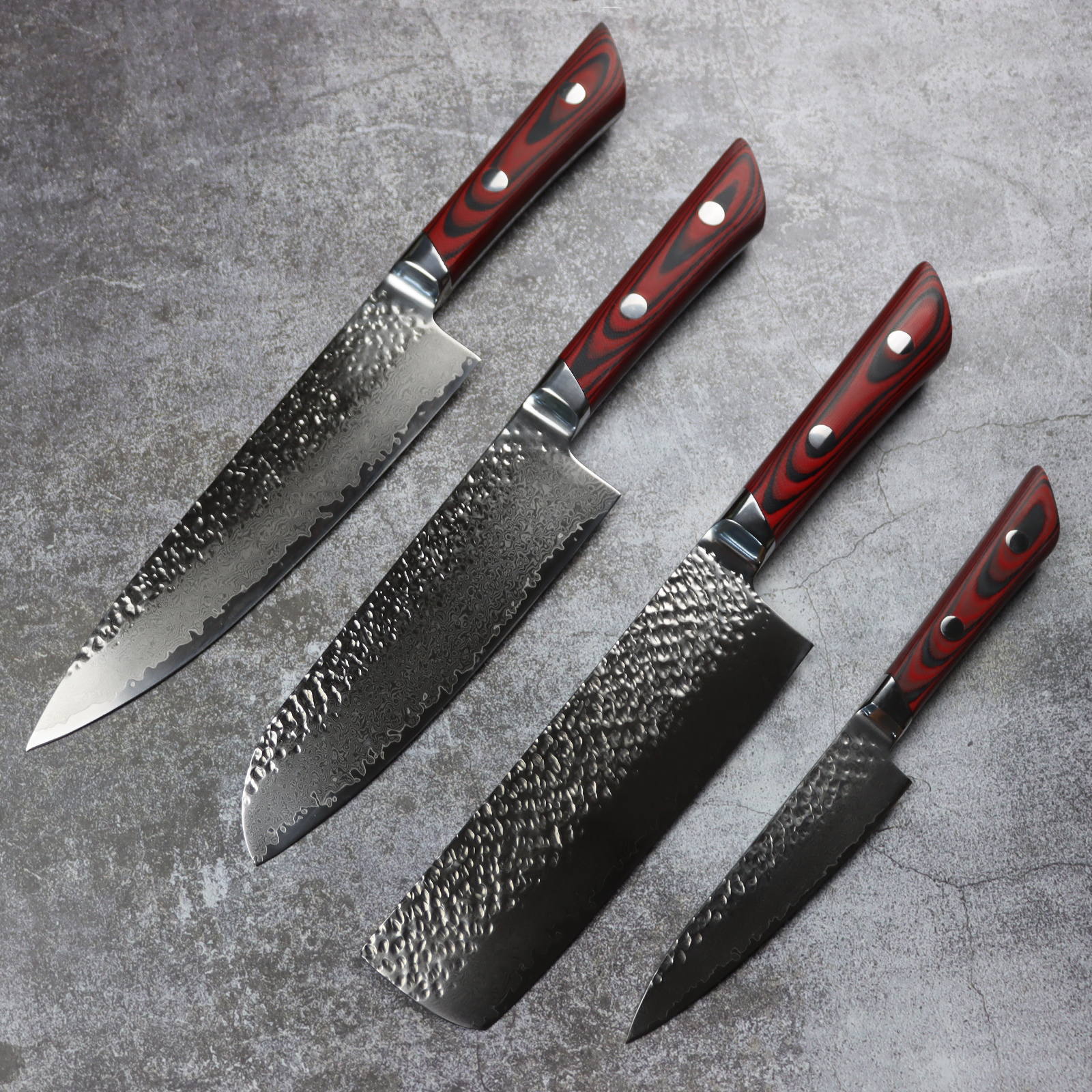




.jpeg?w=1600&h=1600)
.jpeg?w=1600&h=1600)

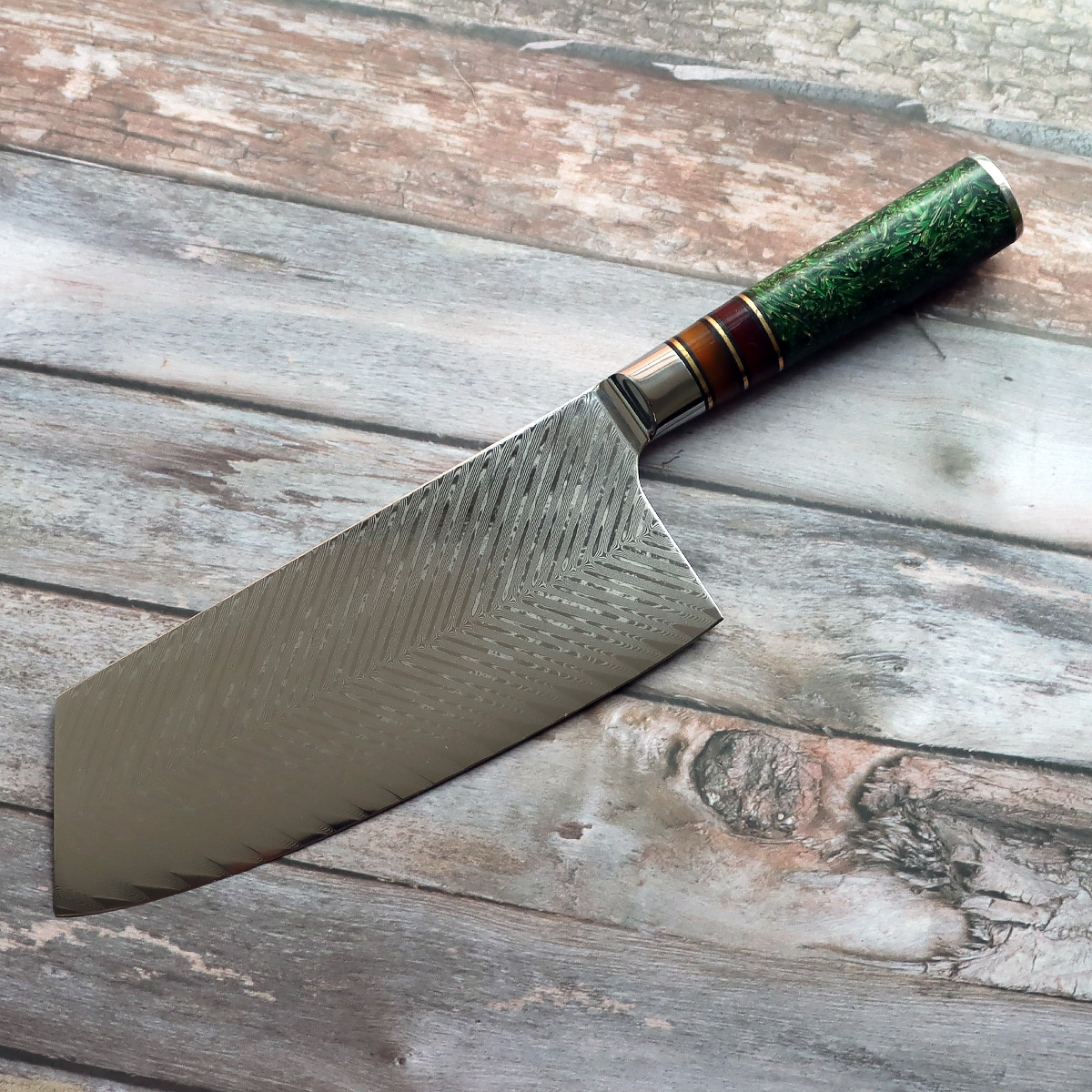



.jpeg?w=1000&h=1000)
.jpeg?w=1000&h=1000)
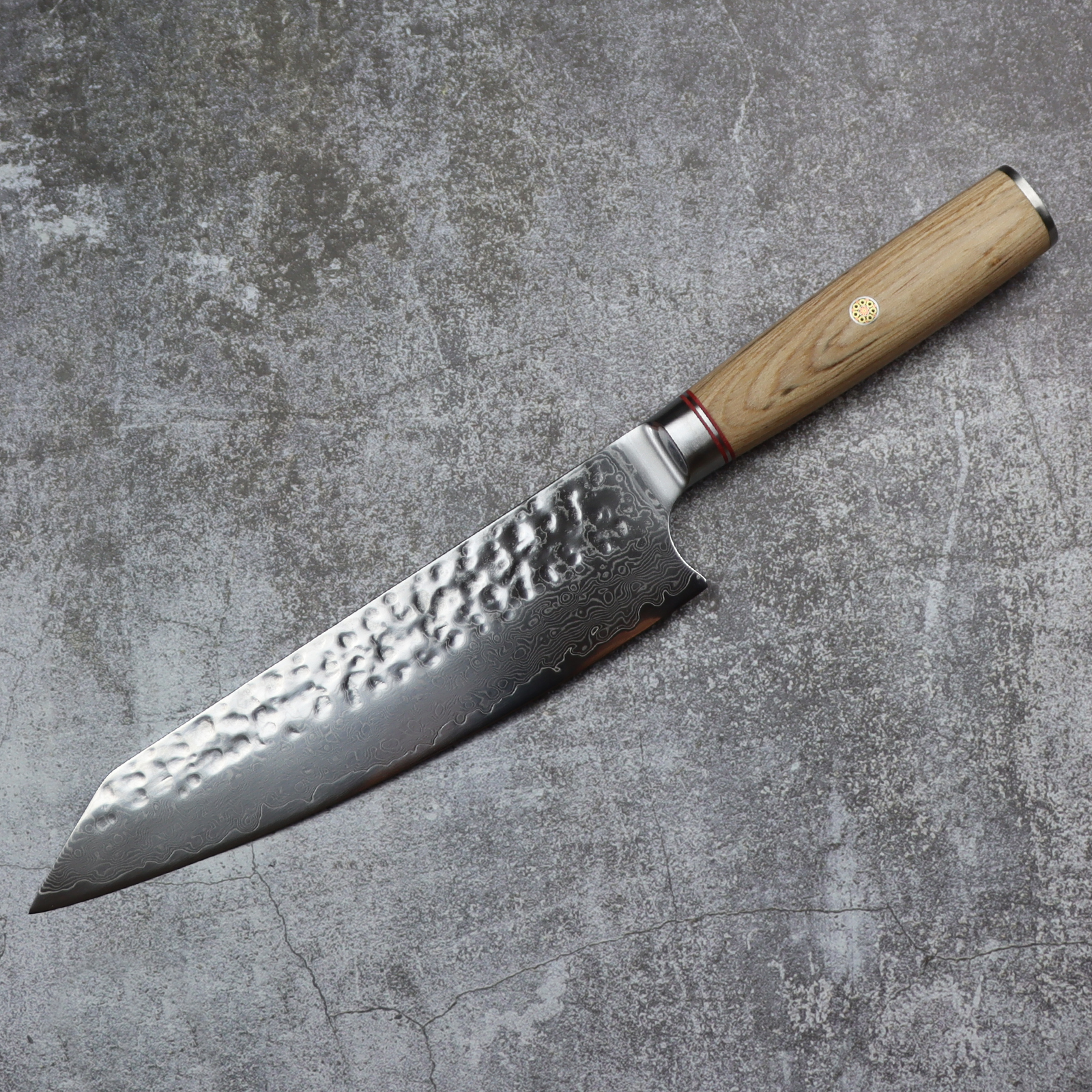

.jpeg?w=1200&h=1200)
.jpeg?w=1200&h=1200)

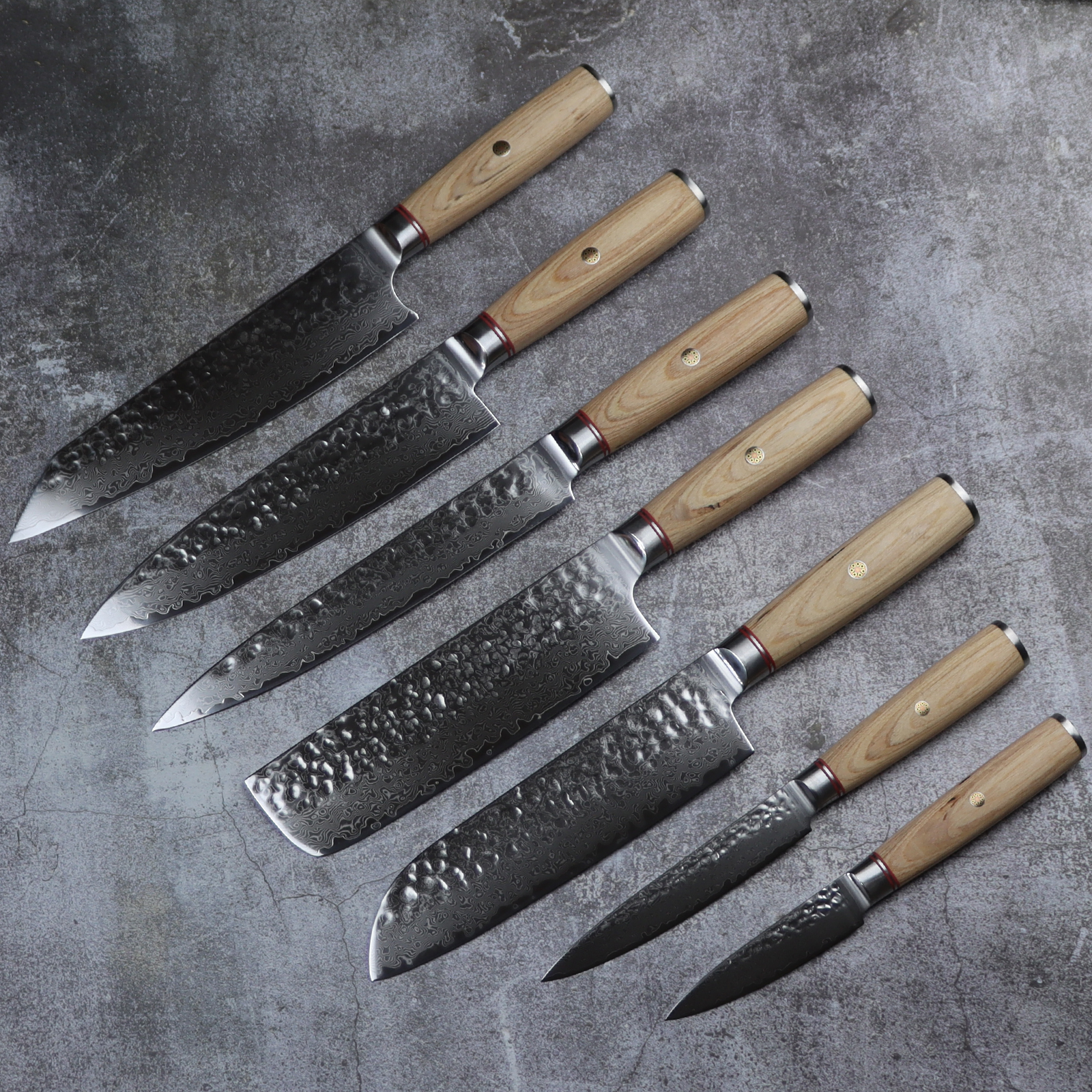

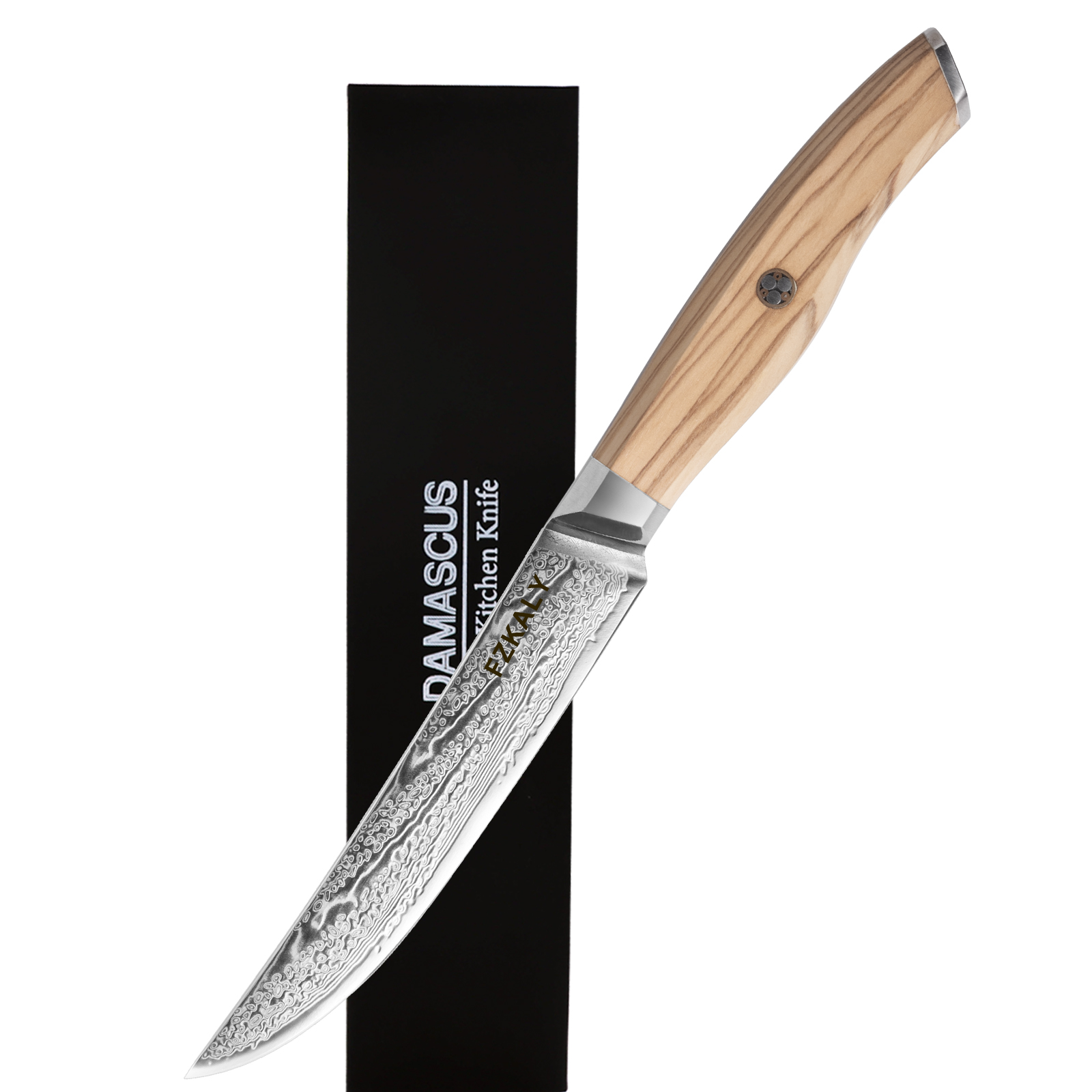

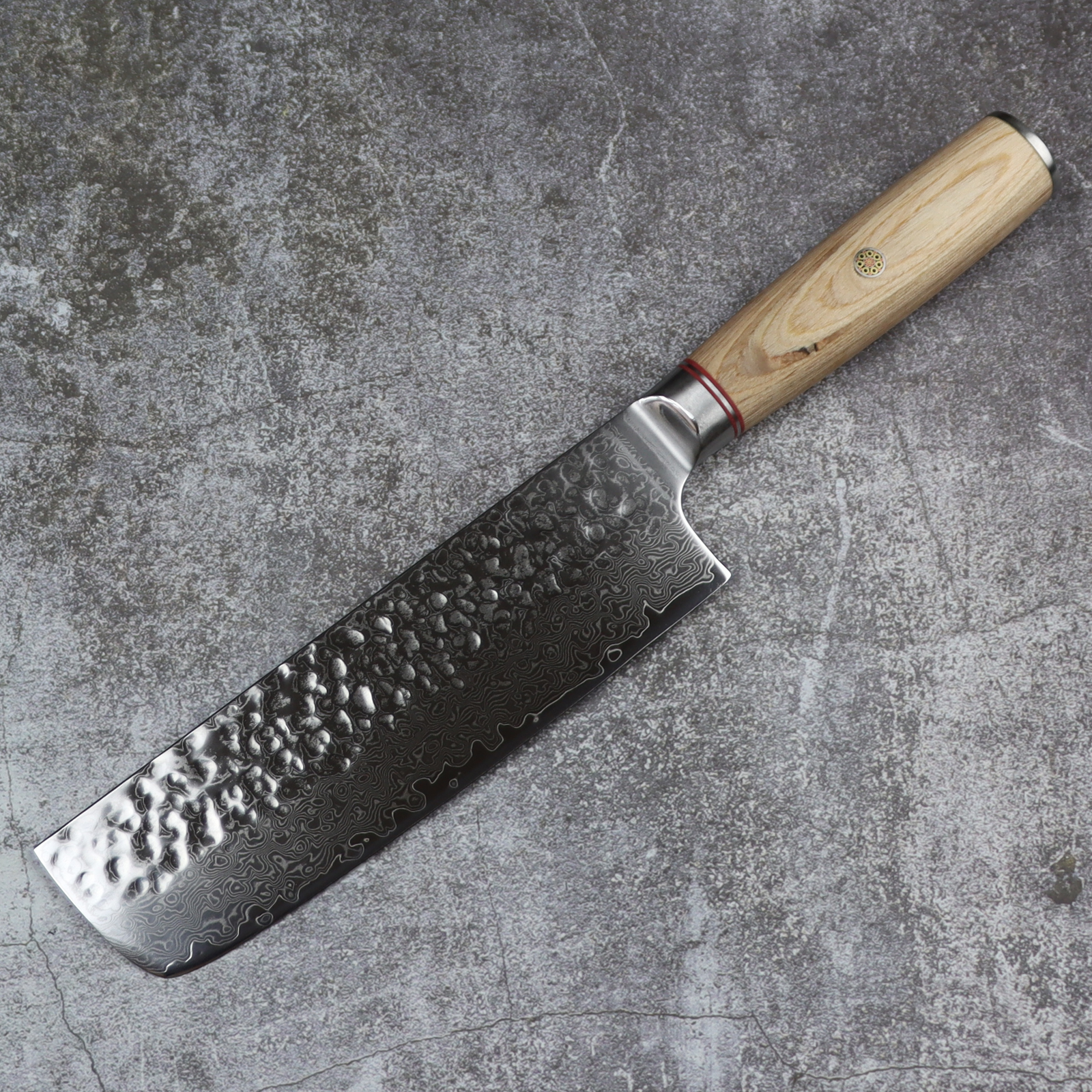
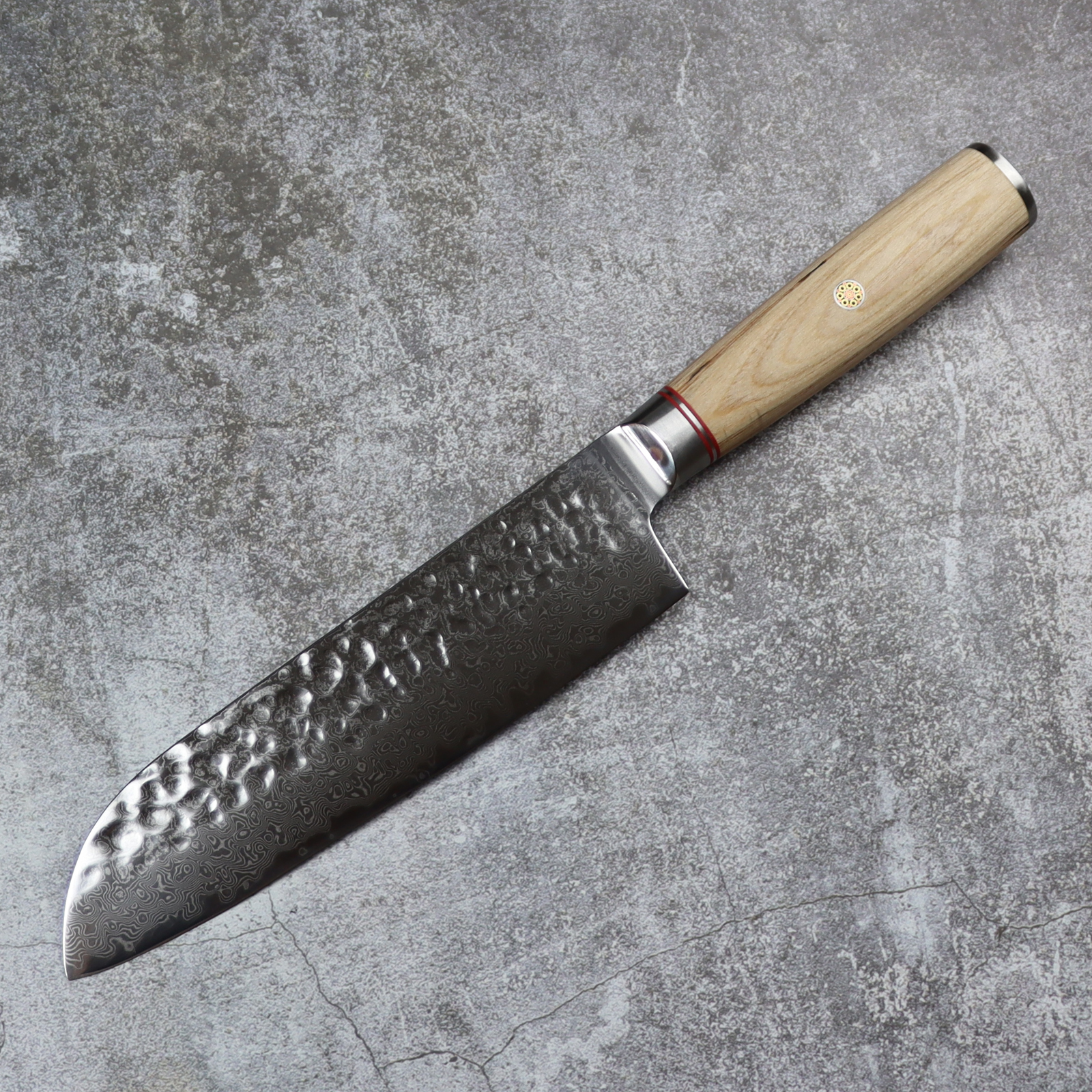
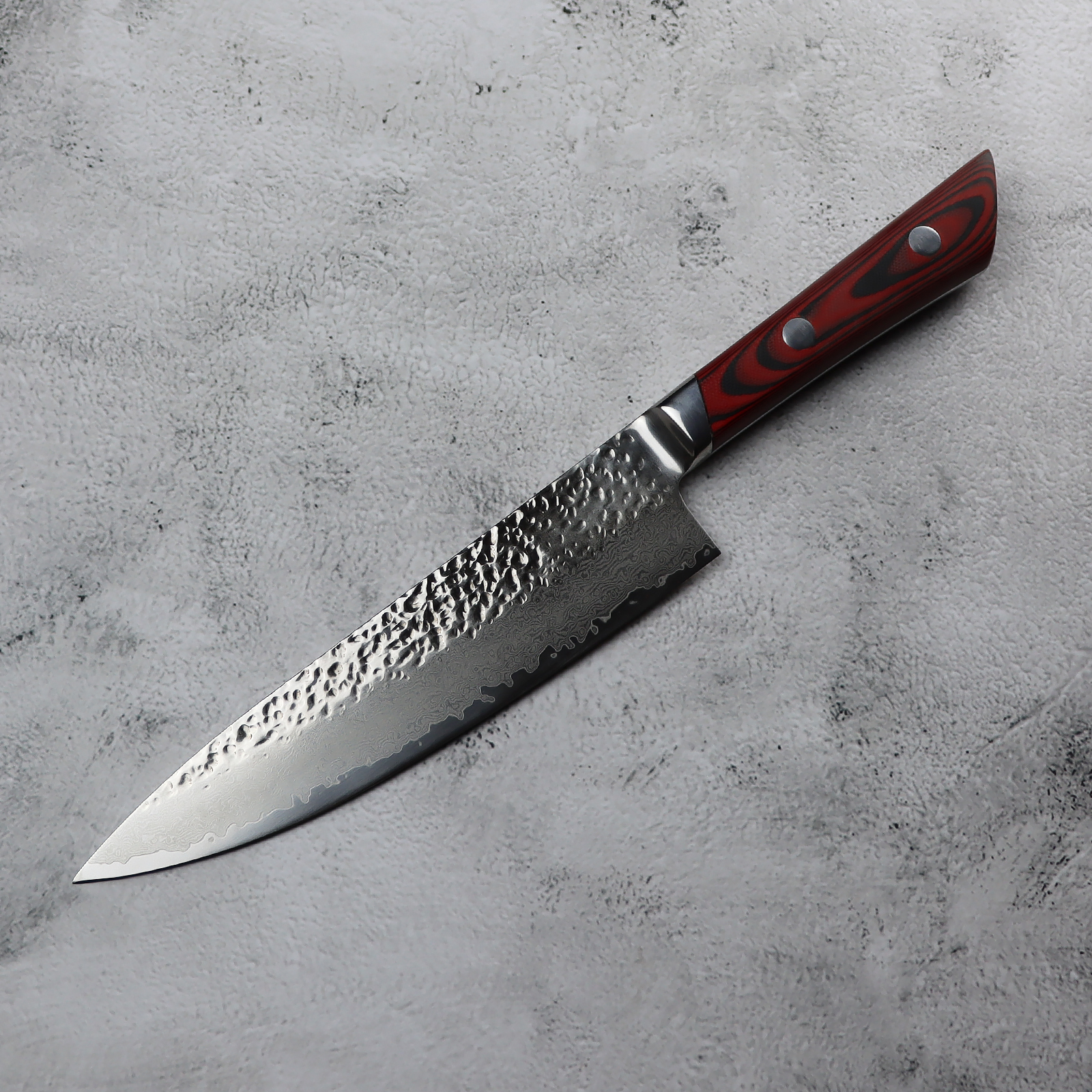
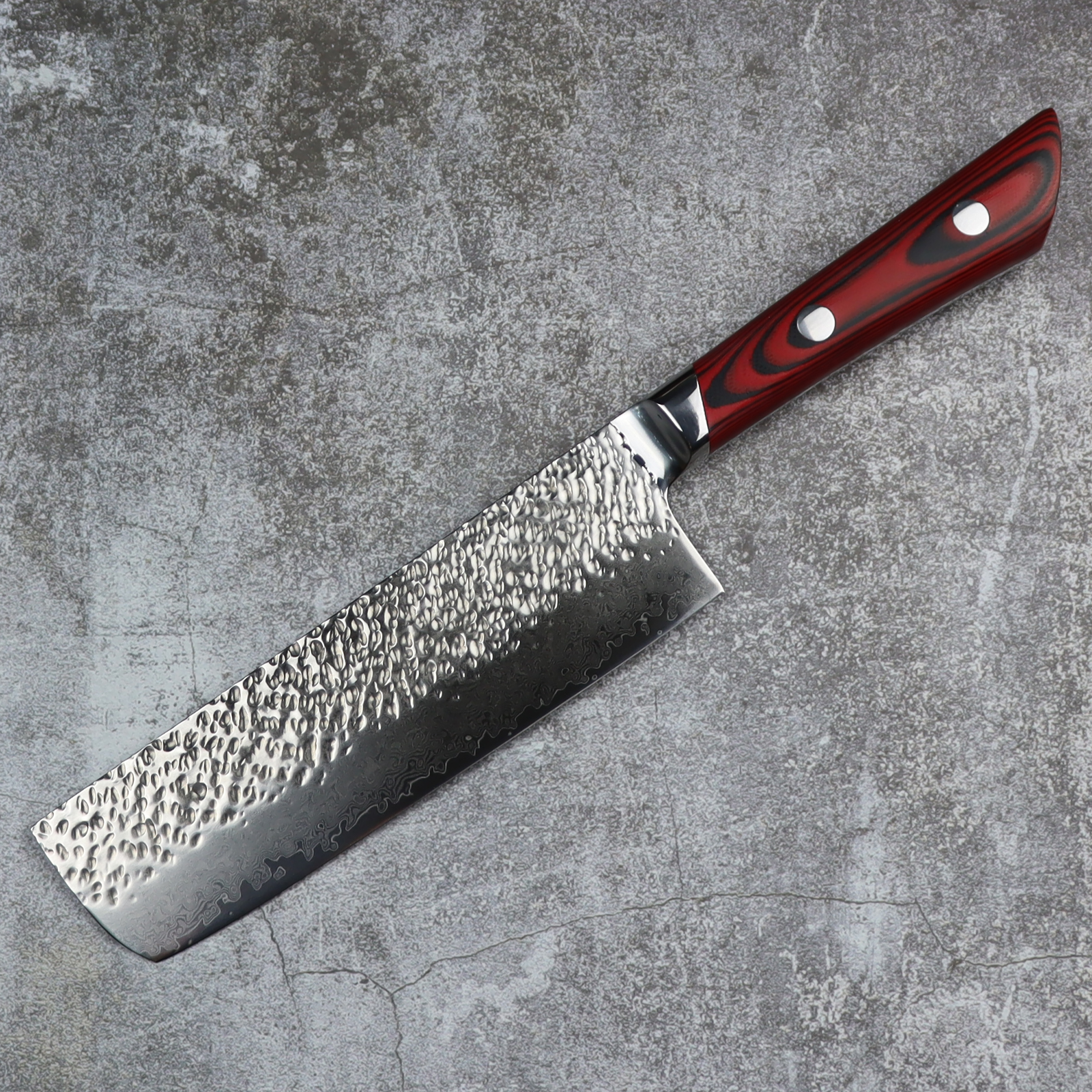
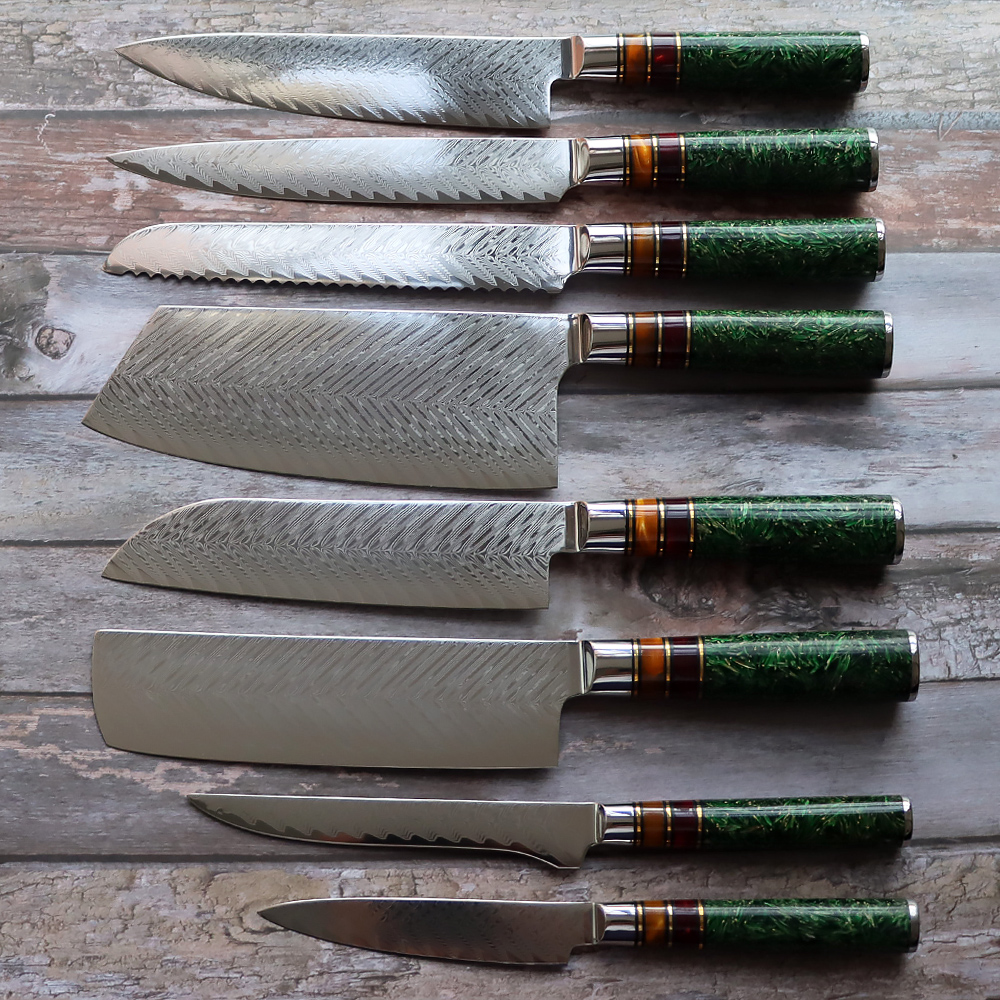
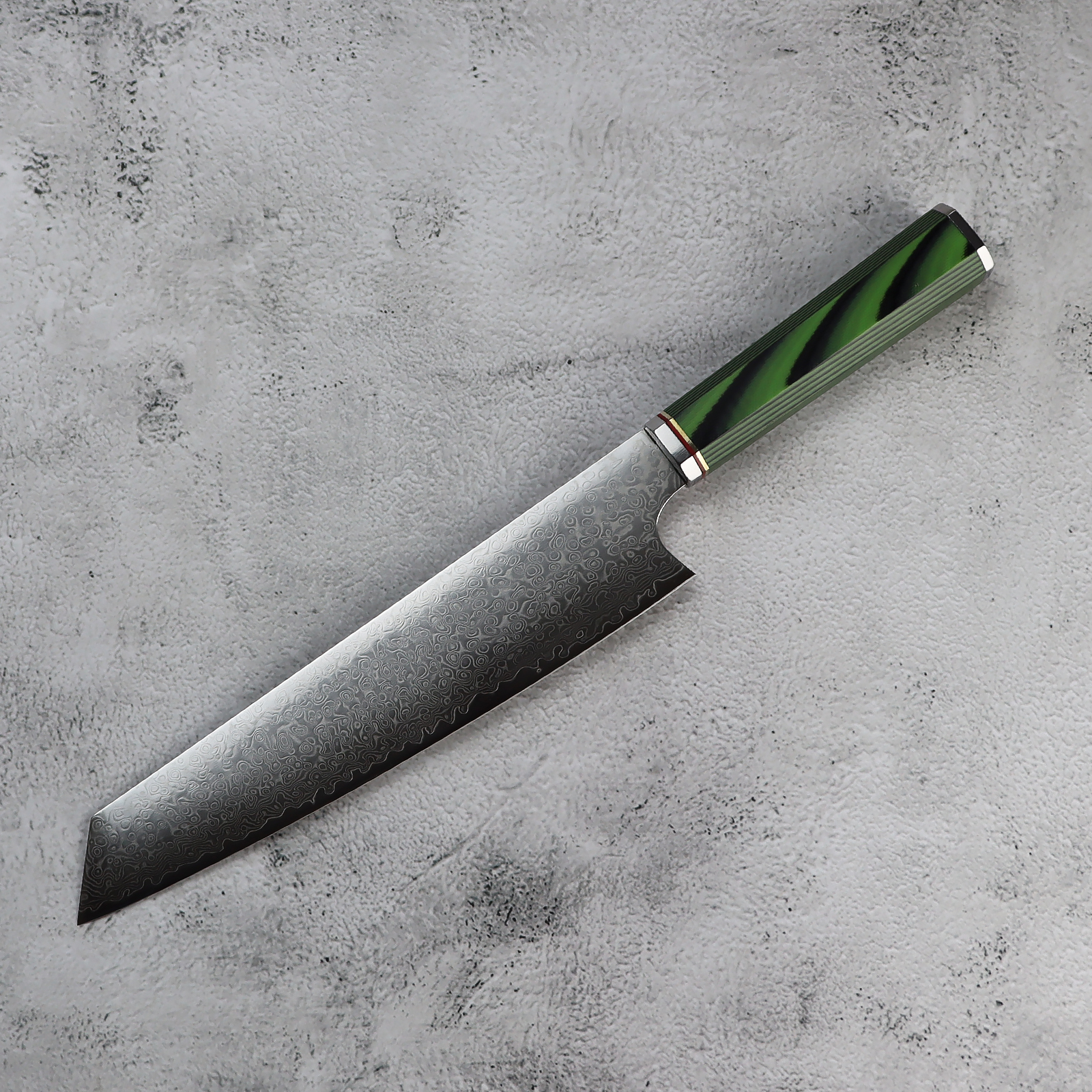
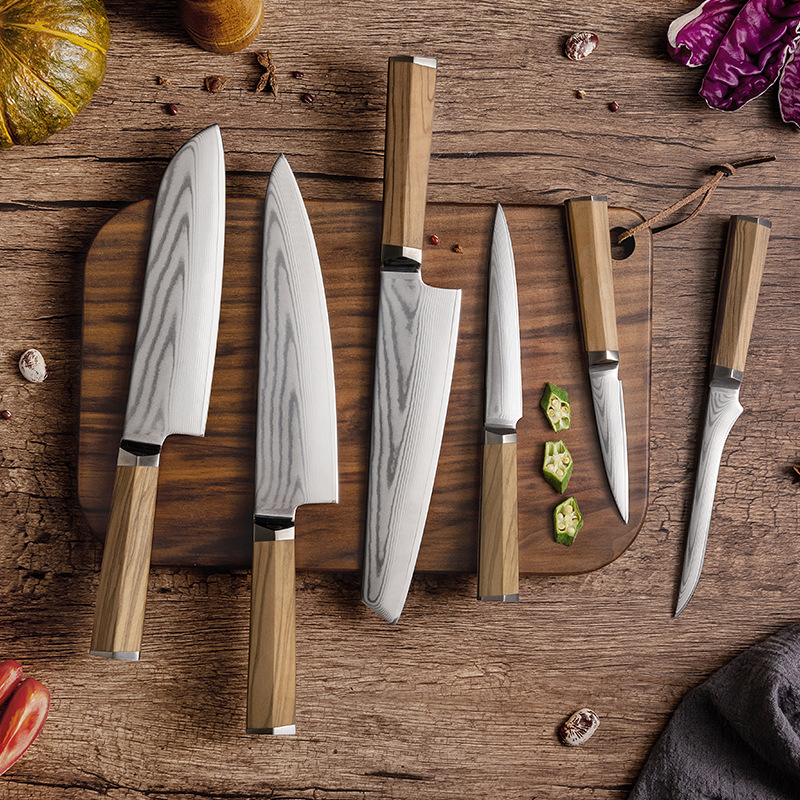
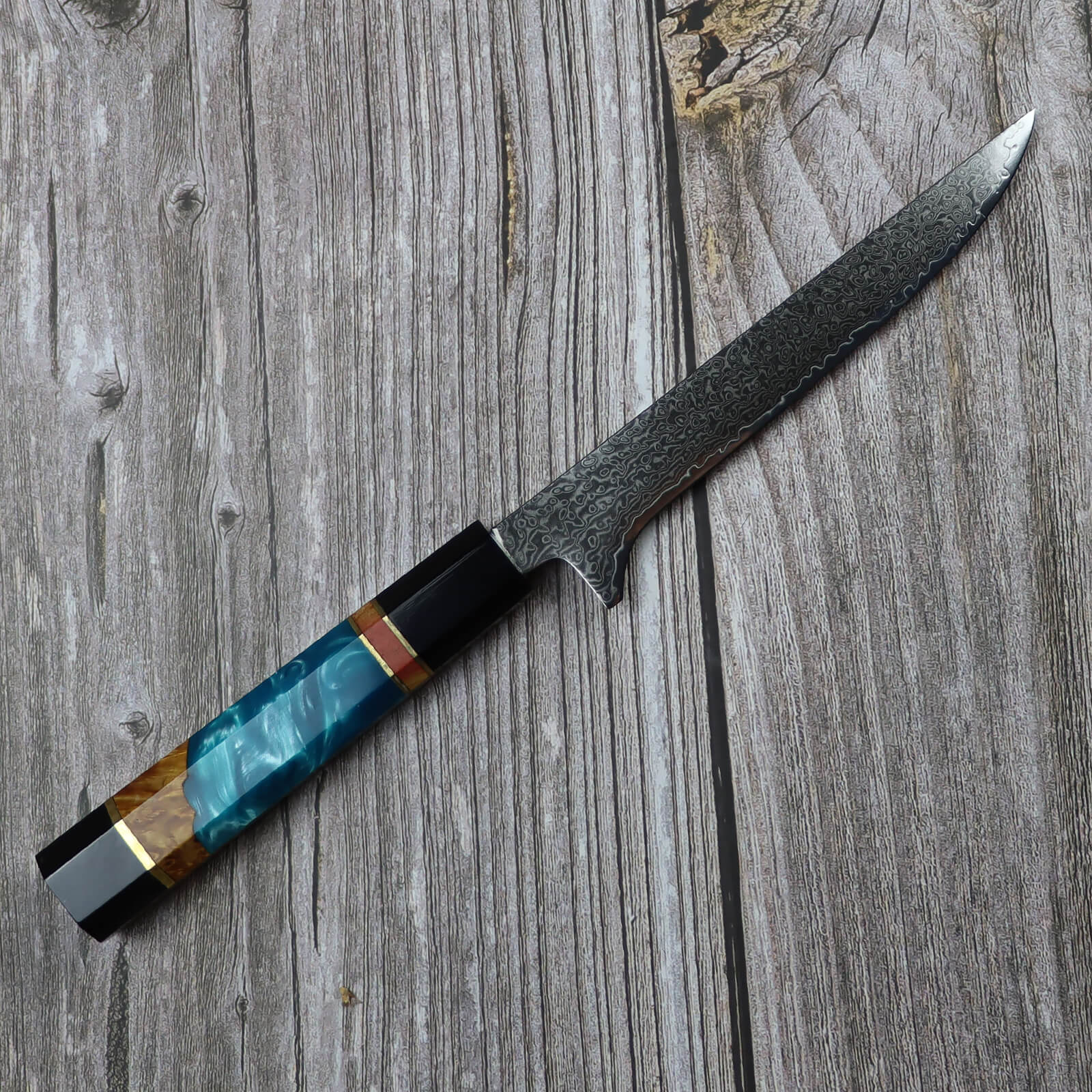
.jpeg?w=1000&h=1000)
.jpeg?w=1000&h=1000)

.jpeg?w=1600&h=1600)
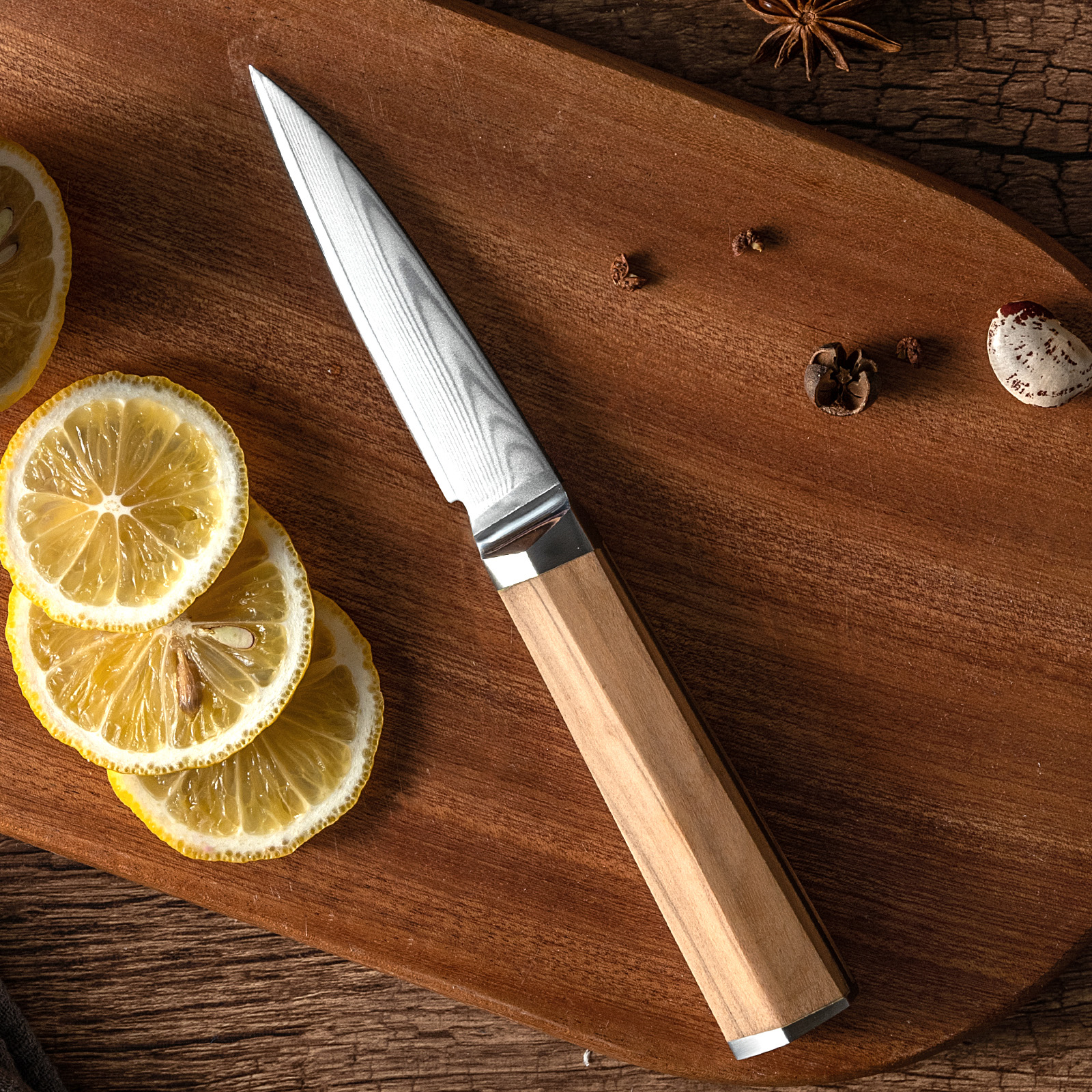
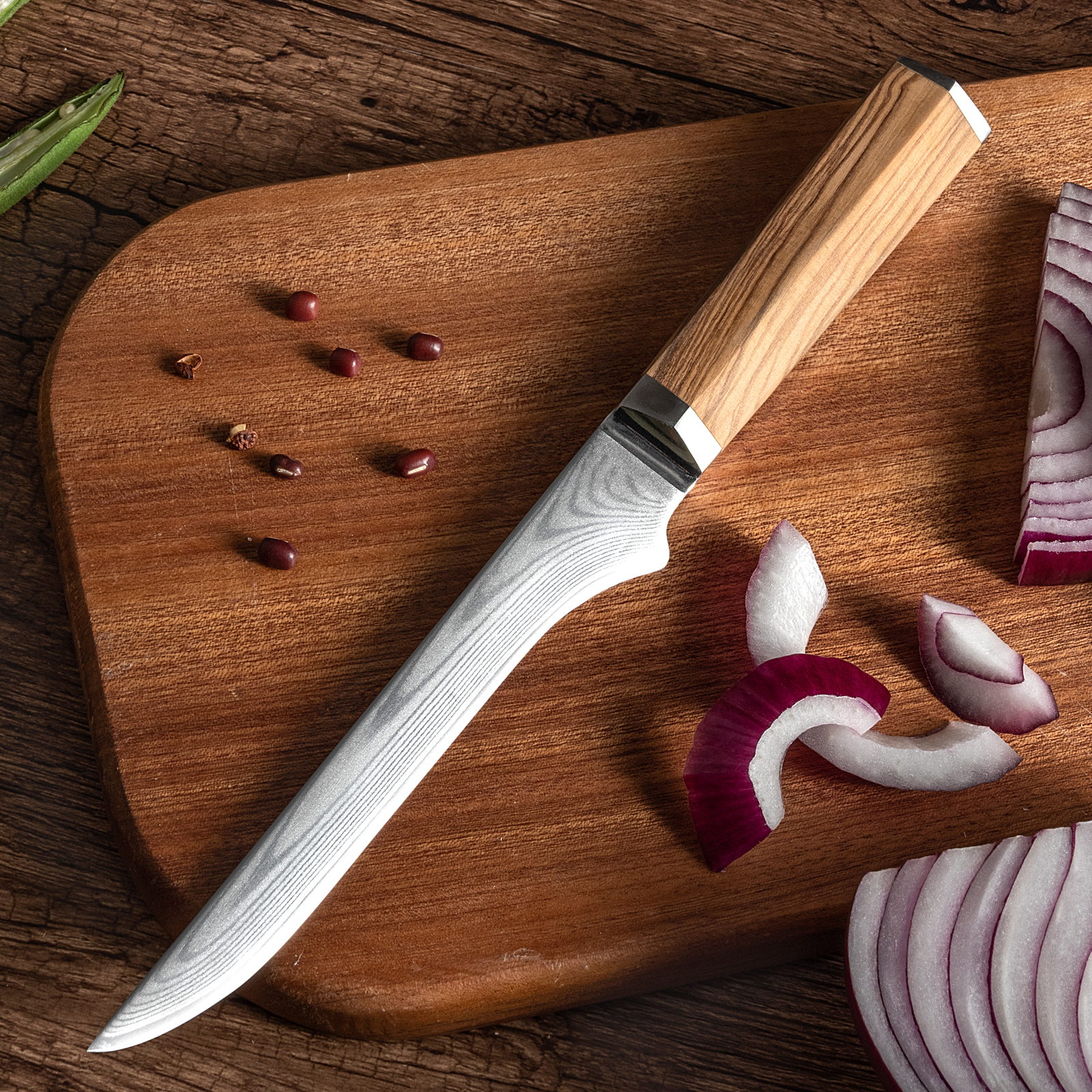

.jpeg?w=1000&h=1000)
.jpeg?w=1000&h=1000)
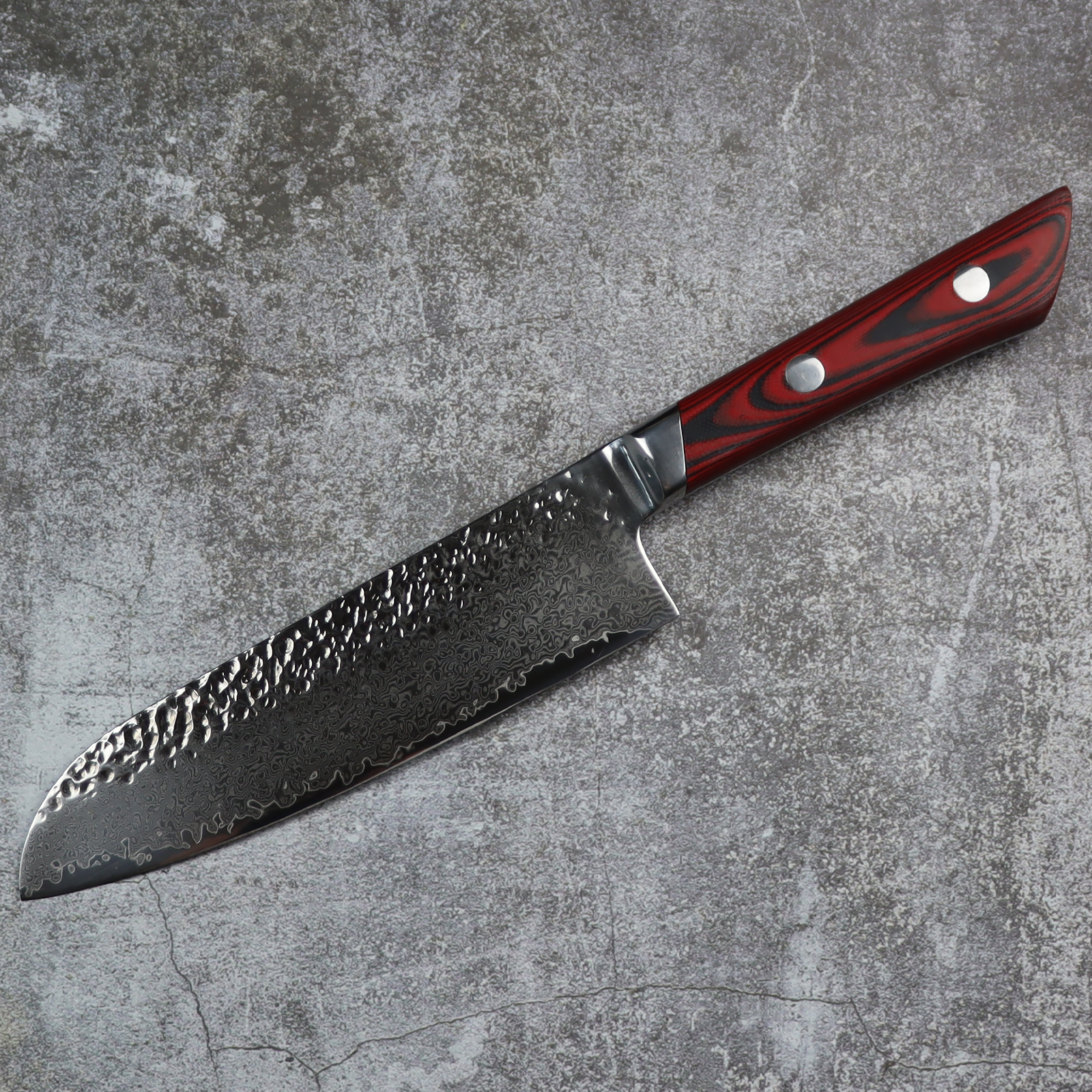
.jpeg?w=1000&h=1000)
.jpeg?w=1000&h=1000)